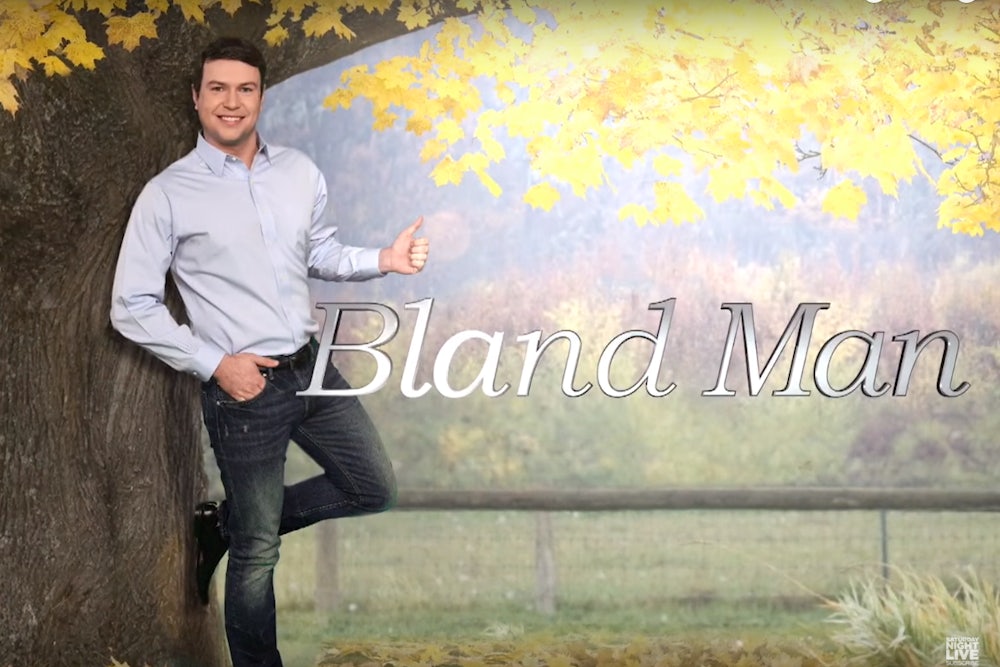On Monday, somewhere around 7.7 million souls will tune into the fifth episode of The Bachelor, and as more girls meet the axe, tensions are running high. Last week, bachelor Ben Higgins took one girl on a helicopter ride, followed by fireworks, while the others watched from their balcony in dismay. Someone had a panic attack; she began referring to Ben as her husband. (Several avowed that Ben is “the most amazing guy in the world,” though as SNL’s parody “Bland Man” suggests, this seems a challenging assertion to defend.) Besieged by jealousy, others have resorted to aggressive statements: “I’m going to punch her in the face. Like, seriously.” After two girls failed to receive roses at the end of the show and were sent home, they dissolved into dramatic weeping fits.
I tend to spend the show caught somewhere between cringing and gagging. I’m mostly coerced into watching by my friends, who have made it a weekly ritual, but I’m also a bit spellbound by the show’s puke-factor—like the squished bug you shrink from but can’t ignore. Even allowing for the histrionic tendencies of reality TV, The Bachelor is an absurd depiction of modern womanhood. It seems to exist in an alternate universe where women never broke out of the shackles of marriage and motherhood, never developed interests unrelated to men, and, instead of becoming intelligent adults, were frozen in a semi-infantilized stage of squealing girlhood. It is almost impossible to reconcile with the age of Hillary Clinton and Sheryl Sandberg: a world where women are earning more college degrees than men and make up the majority of the American workforce; a world, in fact, in which more women are choosing to remain unmarried then ever before.
By 2010, 46 percent of adults under 34 had never been married, a rise of 12 percentage points in just a decade. In a “dramatic reversal” in historic American marriage trends, according to the Population Reference Bureau, the proportion of young adults who had never been married actually exceeded those who were. In 1960, 60 percent of women were married by age 29; today, only 20 percent are.
Now, for the first time in American history, single women outnumber married women. As Rebecca Traister puts it in her upcoming book, All the Single Ladies: Unmarried Women and the Rise of an Independent Nation, “Abstention from or delay of marriage may have been a conscious choice for some women in the 1970s and 1980s, but it has now simply become a mass behavior.” For a variety of social and economic reasons, women just aren’t that focused on marriage anymore. They don’t have to be.
So why has The Bachelor, a show that presents women as distinctly marriage-crazy, remained so popular? It is now in its 20th season, has been running for fourteen years, and still consistently trends on Twitter when new episodes air. Viewers, who—let’s be honest—are mostly women, can’t seem to get enough.
Perhaps women secretly pine for those simple, bygone days when the only pursuit they really had to concern themselves with was snagging a man. Perhaps, beneath their polished, professional appearances, their ambitious career plans, and their calendars of meetings and networking events, they still nurse happy homemaker visions—the fun of playing wife and throwing it all away. But I don’t think so. Or at least I don’t think that’s the entire answer. For most women, the pleasure of watching The Bachelor seems to lie in laughing at it.
Twitter, for one, is awash in comments and memes making fun of the ladies’ emotional hysteria and desperation. Fantasy leagues, in which viewers place bets on which contestant will “win,” have also become popular. My friends follow a particular scoring system that awards points to contestants for such feats as:
- Crying on camera (25 points)
- Expressing fear of a date activity (10 points)
- Kissing the Bachelor on the lips (10 points)
- Mentioning a deceased loved one (10 points)
- Having a body part blurred out (30 points)
- Getting the rose to stay another week (25 points)
We also award points for such sublimely cliché statements as, “I think I’m falling for him” or “I’m just so afraid of getting hurt again.” Points are tallied up each episode. You can win by picking either a particularly unbalanced contestant or one who gets lots of roses (and these two things are not actually mutually exclusive). Just as Survivor generated intrigue by featuring scenarios largely alien to urbanites, so too does The Bachelor draw viewers by depicting romantic conduct that most women find unthinkable. Watching it—and mocking it—is an affirmation of everything modern women are not (or, at least, hope they are not).
Still, it’s a strange exercise, symptomatic of a significant turning point in social norms: A show that encourages outdated ideas about marriage and femininity, and viewers who tune in not because they love it or hate it, but because they love to hate it. They watch it to register what they’re rejecting—the formulas and platitudes of traditional romance, the needy, obsessive behavior of fairly pitiful women. It’s an activity that only makes sense in any age of upended expectations, when what female adulthood looks like is shifting in unprecedented ways. For viewers, all those roses just look a bit quaint and rather silly.
